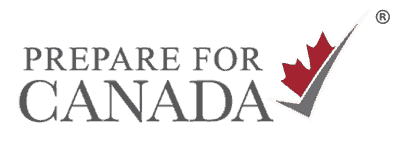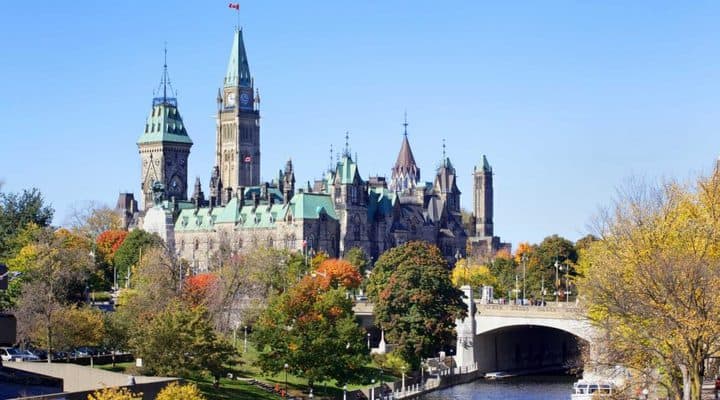
Those who live in Ottawa love it. If you are moving to Canada, it is a top city to consider. As the Nation’s capital city, Ottawa, Ontario offers many career options to help you succeed financially once you arrive.
Where you decide to live in Canada will have a significant impact on your future. So you need to research what the city has to offer. It’s important to think about the housing market and your career options, and how they will affect your family and lifestyle. Ottawa is a large and diverse city in Canada, which is one reason why new immigrants select it as a preferred destination. This overview of living in Ottawa can help you decide if it will meet your personal and professional needs.
About Ottawa, Ontario
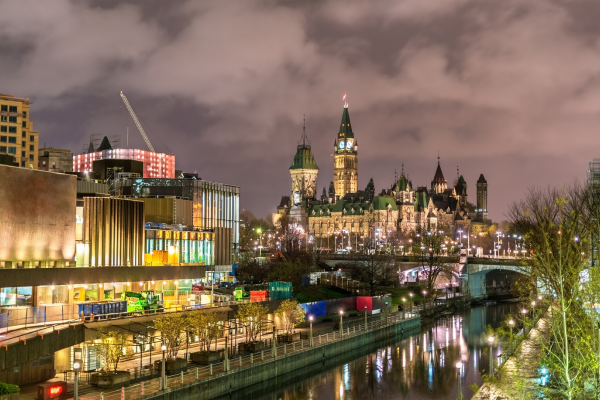
Ottawa is the capital of Canada and the city plays a vital role in Canadian history. Canada’s Parliament building towers over the city, which, along with the famed Rideau Canal, makes it a picturesque place to live.
The city is located in Eastern Ontario, and it borders Gatineau, Quebec. Gatineau is on the north bank of the Ottawa River and together they form the National Capital Region (NCR). It is also between Toronto and Montreal, and north of the eastern United States. The city was founded in 1826 as Bytown and incorporated as Ottawa in 1855. It was named the capital of Canada with Confederation in 1867.
Advertisement:
Ottawa’s multicultural and bilingual populations make it appealing to new immigrants. About 50 percent of its residents speak English and 30 percent speak French. The remaining 20 percent speak other languages.
Ottawa is also appealing to newcomers because of its economic strength. As home to the Federal Government, it offers many career options in government and the tech sector. It is truly an international and a great city to raise a family.
How Many People Live in Ottawa, Ontario?
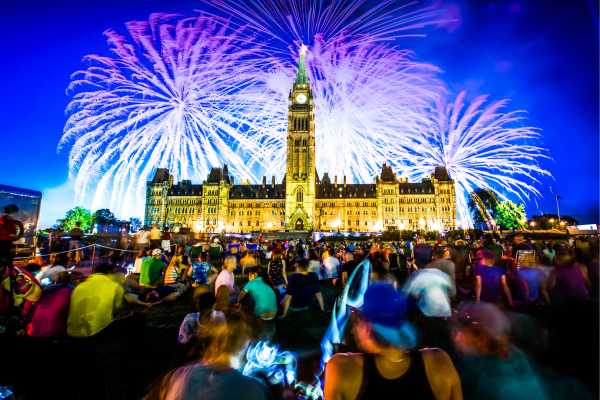
Ottawa is the second-largest city in Ontario and the sixth-largest city in Canada. It has a population of 1,017,449 (2021 census). The Ottawa-Gatineau metropolitan area has over 1.4 million residents.
Ottawa has a young and diverse population. Over 65 percent of residents are between 18 and 49. There are over 200,000 people (23% of the total population) who were born outside Canada that call Ottawa home.
How to Find a Job & Build a Career in Ottawa
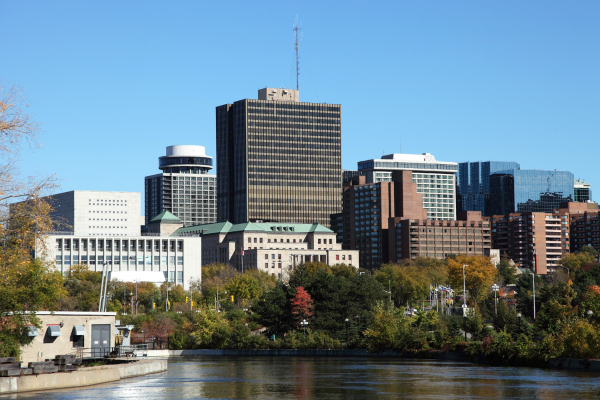
Ottawa’s Local Economy
With the highest-educated workforce in Canada, Ottawa has more engineers, scientists, and PhDs per capita than any other city in the country. It also has Canada’s highest due to a booming public sector and high-tech industry. The unemployment rate is stable and is usually below the national average.
Advertisement:
Ottawa has a strong economy and offers a variety of job opportunities for people with diverse backgrounds and interests.
Key industries in Ottawa include:
- IT
- Biotechnology and life science
- Professional services
- Public service
- Tourism.
Major Employers in Ottawa
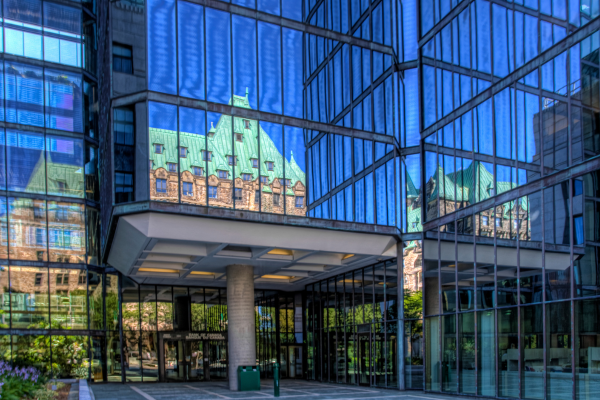
Ottawa is home to major technology and healthcare companies. The Federal Government is the leading employer in the region. The following are some of Ottawa’s top employers in 2024:
Adobe Systems Canada Inc.
Bank of Canada
Canada Revenue Agency (CRA)
CBC / Radio-Canada
Health Canada
Hydro Ottawa
The City of Ottawa
The Royal Canadian Mint
Statistics Canada
Trend Micro Canada Technologies Inc.
Career Pathways in Ottawa
Ottawa has consistently seen higher employment growth than in other cities within Ontario. It has an unemployment rate of 4.9% (as of March 2024). This is lower than the national average of 6.1%.
The city’s top industries also continue to be the industries experiencing the most growth. Industries that are hiring in the region include:
- Technology
- E-commerce
- Government and public service
- Construction
- Real Estate.
Related Posts:
Best Cities for Software Engineer Jobs & Salaries in Canada
IT Employment & Job Requirements in Canada
Software Developer Jobs, Salaries & Careers in Canada | What Newcomers Must Know
Ontario Canada | Population, Cities, Economy & Culture
You can explore job opportunities in Ottawa here. Or, you can use local recruitment professionals to help you with your job search. The employment companies to consider include Randstad Canada, LRO Staffing, Advantage Group, Keynote Search, Aerotek, and TH Employment Solutions.
The Ottawa Housing Market
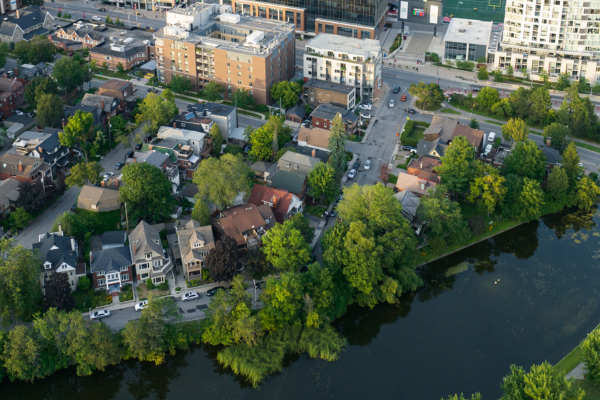
While finding a job in Ottawa is an important first step, so too is finding a place to live. For new immigrants, it’s common to take up short-term housing or rent an apartment first, before buying a home.
Is Housing Expensive in Ottawa, Ontario?
There are plenty of housing options in the Ottawa region. Housing costs across Ontario are on the rise. Similar to other Ontario cities that you may be considering, Ottawa housing costs are increasing. Fortunately, the cost to buy a home in Ottawa is more affordable than in other larger cities such as Toronto. As always, the neighbourhood you choose to rent or buy will dictate the cost.
Finding a Place to Rent in Ottawa
New immigrants have many rental options. You can find places to rent across the city. Ideally, you want to find a place that is close to your job, place of worship, schools, shopping, transit, and other important locations.
These are considered the best locations to live for renters:
- The Glebe
- Kanata
- Orleans
- Old Ottawa South
- Alta Vista
- Sandy Hill
- Westboro.
Find out more about the most popular and Best Ottawa Neighbourhoods for Renting.
To search for available rental units and current prices in Ottawa, check out Rentals for Newcomers!
As of March 2024, the average cost is $2,043 for a 1-bedroom apartment, $2,508 for a 2-bedroom, and $2,731 for a 3-bedroom apartment. Location, size, and amenities all affect the cost of a rental unit.
Most property owners now require tenants to have  . It is often included as part of your lease agreement. Even if it is not, it is highly recommended to protect your family, personal belongings, and finances. Get more information about renting a home: Renting in Canada: What Newcomers Need to Know.
. It is often included as part of your lease agreement. Even if it is not, it is highly recommended to protect your family, personal belongings, and finances. Get more information about renting a home: Renting in Canada: What Newcomers Need to Know.

Buying a Home in Ottawa
Ottawa’s housing market offers newcomers different housing options. For example, about 40% of properties are detached homes. The remaining are a combination of townhomes, semi-detached houses, condos, and apartments.
The cost to buy a home is on the rise in Ottawa. According to Royal LePage, the average home price in Ottawa is $757,700 in the first quarter of 2024. This is a year-over-year increase of 4.4 percent.
The median price of a single-family detached home increased by 4.5 percent over last year to $869,300. The median price to buy a condo increased by 4.6 percent to $401,500.
These numbers are still below the national average and remain more affordable than the housing market in the Greater Toronto Area and Vancouver. To buy a home, contact a realtor in the area who will guide you through the home-buying process. Find out more about buying your first home in Canada: First Time Home Buyer: Newcomer Tips
Driving & Public Transit in Ottawa
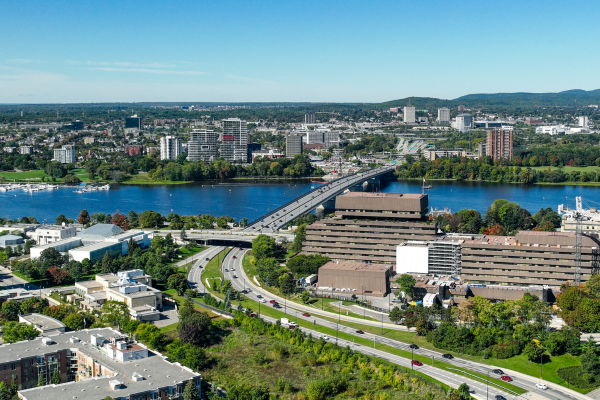
Driving in Ottawa, Ontario
Highway driving is a vital skill for Ottawa residents. Commuting from neighbouring communities into the city is common. The region has several highways including Highway 417 (part of the Trans-Canada Highway), Highway 416, and Highway 401. The city also has parkways, including Queen Elizabeth Driveway, Rockcliffe Parkway, and Aviation Parkway
Winter weather can create difficult road conditions. So if you haven’t driven in winter weather before, it’s helpful to learn how to drive in snowy conditions. The minimum age to get a driver’s licence is 16. All drivers must complete the graduated driver’s licence process. To get a commercial driver’s licence in Ontario you will need a Class A or Class D licence. Read more about Driving in Canada: 10 Essential Facts to Know.
Ottawa Public Transit

The public transit system in Ottawa is run by OC Transpo. The rapid transit system consists of bus and light and medium rail lines. Bus services run seven days per week and connect to all major neighbourhoods in the city as well as Gatineau.
Find out more about driving in Canada:
Getting Your Ontario Drivers License
Driving Test in Canada: A Full Guide
Tips for Winter Driving to Ensure Your Safety
Community Support for Newcomers
Ottawa is commonly regarded as the best place to live in Canada. Part of this has to do with its diverse and multicultural population and how the city supports newcomers. The city offers many settlement services for newcomers.
In addition to the Newcomer Information Centre, other agencies include Ottawa Community Immigrant Services, Immigrant Women Services Ottawa, Catholic Immigration Center, and Hire Immigrants Ottawa. For information about settlement services in the Ottawa area, click here. Read more about Services in Canada to Help Newcomers Settle.
Language Support in Ottawa
Several organizations in the city offer language support services to newcomers and anyone looking to improve their English or French speaking skills. They include the IWSO Language Services Ottawa, Language Interpretation Services (ONHC), and YMCA Language Assessment and Referral Centre. Languages classes are also funded by the Government of Canada.
Personal Finance & Banking
All local banks in Ottawa have programs to help new immigrants. They can help you open a Canadian bank account. Banks can also help you get a credit card, line of credit, and get a mortgage, Visit a local bank branch to start the process.
Get more banking tips for newcomers:
How Much Money Will I Need to Move to Canada
Top 10 Financial Steps to Take Before You Leave for Canada
Move to Canada | Transferring Cash & Valuables
Open a Bank Account Before Arriving in Canada
Ottawa’s Education System
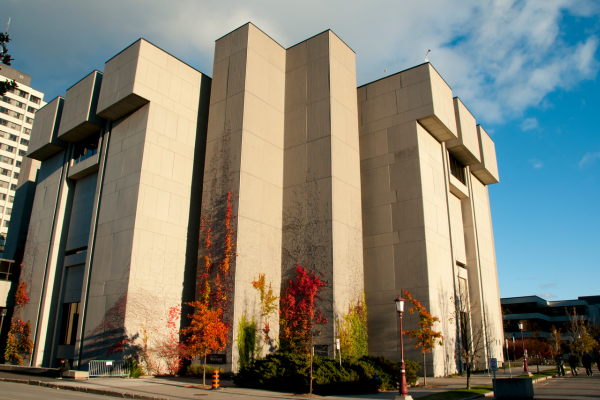
Ottawa offers high-quality English and French education in public, Catholic, and private school systems. The government pays for public elementary and secondary school education. However, if you enroll your children in private schools, you will have to pay tuition fees. Ottawa’s colleges and universities offer specialized learning for adults and high school graduates.
Elementary and High School Education
Ottawa is unique because they have four school boards: English, English-Catholic, French, and French-Catholic The largest is the Ottawa-Carleton District School Board (OCDSB) with 147 schools. In total, there are 318 schools, including 65 high schools in the city. There are also several private schools.
Post Secondary Institutions
Ottawa has two universities and two colleges:
University of Ottawa offers more than 300 programs in 10 faculties and is North America’s premier bilingual university.
Carleton University offers over 200 programs in 47 departments, including public affairs, journalism, film studies, engineering, IT, and international studies.
Algonquin College offers more than 100 full-time programs.
La Cite collégiale offers 70 full-time college programs in areas such as administration, media and communications, health, technology, hospitality and tourism, community services and trades.
The city also has two Catholic universities – Dominican University College and Saint Paul University.
Read more about education in Canada:
Schooling in Canada | A Look at the Education System
Higher Education Offers Benefits to Newcomers
Where To Get Medical Care in Ottawa, Ontario
In case of an emergency call 9-1-1. This number is the same no matter where you live in Canada. There are four hospitals in the region: Queensway Carleton Hospital, The Ottawa Hospital, Montfort Hospital, and Children’s Hospital of Eastern Ontario. As well, there are several specialized hospitals and clinics in the region.
Ottawa residents are eligible for the provincial public health program, Ontario Health Insurance Plan (OHIP). It covers a wide range of medical services, including check-ups with your family doctor or at walk-in clinics, hospital visits, eye exams, and vaccines. However, OHIP does not cover the cost of prescription drugs.
As a newcomer to Ontario, you can apply for provincial healthcare coverage as soon as you arrive.
For prescription drugs and some services that OHIP does not cover, you can pay for additional  . When you secure a job, your employer may offer insurance for you and your family.
. When you secure a job, your employer may offer insurance for you and your family.
How to Find A Family Doctor In Ottawa
Newcomers need to find a family doctor. They can supply medical advice, write prescriptions, and refer you to specialists. To find hospitals, doctors, and dentists in Ottawa, visit Health and Support Services. Get more information about health care in Canada: Steps to Access Free Health Care in Canada
What is Day-to-Day Life Like in Ottawa?
Things to Do in Ottawa
Ottawa has many cultural attractions, including galleries, museums, and festivals. As well, Ottawa has many recreation facilities throughout the city including multi-purpose facilities, seniors’ centres, parks, tennis courts, basketball courts, arenas, and outdoor rinks. One of the greatest winter activities in Ottawa is skating on the Rideau Canal. You can rent skates, and skate the longest outdoor rink in the world! Winterlude is an epic Canadian winter festival that takes place each year during the first three weeks of February.
Public Spaces & Attractions
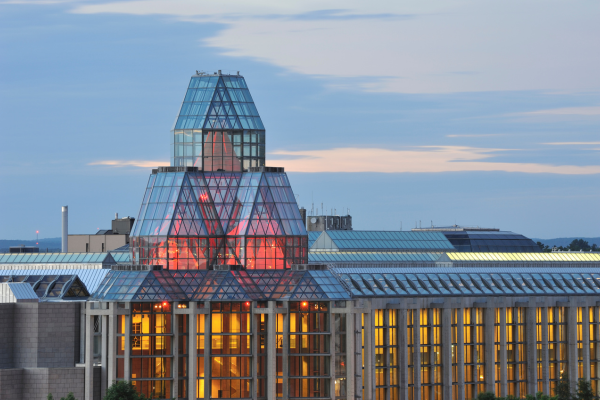
As a top tourist destination in Canada, there is a lot to see and do. Some of the most popular attractions include Parliament Hill, The Canadian War Museum, National Gallery of Canada, Peace Tower, Canadian Museum of Nature, and the Canada Aviation and Space Museum.
The city also hosts many festivals and events throughout the year. The most popular include the Canada Day celebration, Canadian Tulip Festival, Ottawa Dragon Boat Festival, Winterlude, and other events at the ByWard Market.
Restaurants & Nightlife
Ottawa has a bit of everything. With a diverse population, you can experience food from virtually every culture you can imagine. This city has countless great restaurants, pubs, and nightclubs. ByWard Market, Elgin Street, Little Italy, and Chinatown are popular destinations. You also have the choice to cross over to Quebec and visit Hull and Gatineau.
Nature & Natural Landscapes
Ottawa lies on the Southbank of the Ottawa River. In terms of nature, it is perhaps best known for the Rideau Canal. Other top nature destinations to visit in the region include Gatineau Park, Rideau Falls, and Hog’s Back Falls.
Sporting Events & Concerts
Ottawa is home to the Senators of the National Hockey League (NHL). The Ottawa Redblacks of the Canadian Football League (CFL), also call the city home. There are also other minor pro leagues, minor league, and collegiate sporting teams in the area.
If you love music, Ottawa is a great place to live. In addition to hosting top international artists throughout the year, it also has world-class music festivals such as Bluesfest and the Ottawa International Jazz Festival.
Culture & Diversity in Ottawa
Diversity
Ottawa is a proud multicultural city and reflects the rich cultures and traditions of both English and French Canada. About 50 percent of residents speak English and 30 percent speak French. The remaining 20 percent speak other languages.
There are over 200,000 immigrants who call the city home. Of these residents, 45% are from Asia and the Middle East, 26% are from Europe, 14% are from Africa, 11% are from Central and South America, and 4% are from the United States.
14% of residents state their mother tongue is French. 22% have a primary language that is other than French or English.
Religion
As a diverse city with a large immigrant population, people practice different faiths in Ottawa. About 65% are Christian. 6.7% are Islam, and 1.4% are Buddhist.
The Weather in Ottawa
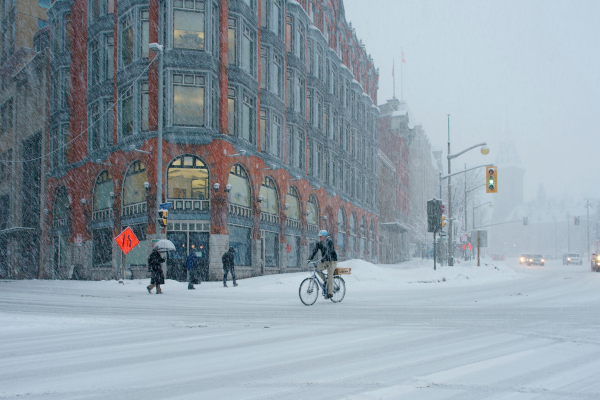
The city has a humid continental climate. Being in the northeastern part of Ontario, Ottawa is known for its very cold winters. It averages about 88 inches of annual snowfall. Temperatures can reach -20 degrees Celsius or below. The wind chill can make it feel even colder. The coldest month of the year is January. The average temperatures range from -5 C to -14 C.
The good news is the spring and summer months warm up considerably. You can expect daytime highs averaging about 25 C from June to August.
Common Questions Immigrants Ask About Living in Ottawa
Is Ottawa a Good Place to Live?
Ottawa is consistently ranked as the best place to live in Canada as well as one of the best 100 cities in the world. Its diversity, strong economy, schools, and Canadian history make it a great place for newcomers. It also ranks as the best place to live for new immigrants to Canada.
Is Ottawa Good for Immigrants?
Absolutely. Ottawa is an excellent location for immigrants to live. The city is clean, friendly, and culturally diverse. It has a good transit system, is great for pedestrians, and offers many housing options. The city has a world-class education system and is home to the Federal Government. Perhaps most important for newcomers, it offers a range of career opportunities.
Is Living in Ottawa Expensive?
Ottawa can be an expensive place to live. While it does have slightly lower than average housing prices, rent is higher than in most cities. Food, entertainment, and transit can be more expensive than if you lived in a smaller city. But, considering the career opportunities and job prospects in the region, it balances out.
For more information, tools, and free webinars about living in Canada visit our Settling in Canada resource page. We’ll help you to settle successfully!
